Anyone with teaching responsibilities will know how difficult it has been to carve out time and space for research during the past year. For early career researchers that has been even more difficult to achieve. However working collaboratively can be one way to keep your research alive, create new connections and the power of networks like the RSA, can help. What follows are some reflections on the process of creating a small international Research Team from three researchers who came together through the RSA’s Women’s Network Forum to share common interests in tourism and regional development. The aim was to try to develop our research during the time of Covid19 by building collaborative relationships on line.
Thanks to the RSA Women’s Network, this small research group has developed and is now working on desk-based research based on a comparison between the Italian experience of rural and agri-tourism and the potential for development of rural tourism in Kazakhstan. Kazakhstan is an agri-industrial country and the Kazakh government is looking to develop tourism in response to the economic aftermath of Covid 19 and in doing so to draw on the natural resources and cultural heritage of the country.
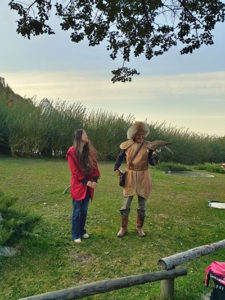
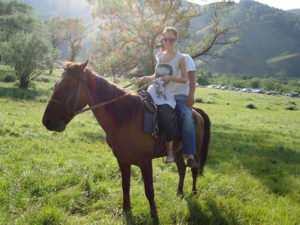
Horse riding in rural Kazakhstan
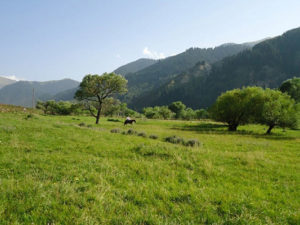
The current State plan to develop agri-business is in place until the end of 2021 (www.exmar.kz). Italy has had a national law governing agri-tourism and a strategy of developing rural tourism through Regional Development Plans as a response to regional economic deprivation since the 1990s. Focus on policies, indicators, trends and lessons learned from the Italian experience are necessarily the first steps.
There are clear difficulties in making a comparison across regions where the data is partial and has been collected for other purposes. No complete data sets currently exist for Kazakhstan, so what we have to draw on can only give an indication of lines of enquiry that could be followed up in the future in a specific study. The Italian experience is well documented and we are using time series data from different sources (mainly reports by Agritourist and the Italian National Statistical Bureau – ISTAT) tracking, in some case, about 30 years of data. Longitudinal data now exists showing the growth in specific regions.
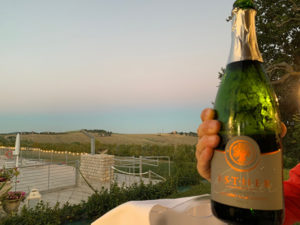
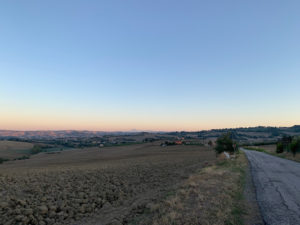
In Kazakhstan, current datasets are not equivalent to those available from Italy but it is still possible to get a sense of both the growth that occurred in Italy, and some base level data from Kazakhstan on the extent of tourism in rural areas. Making clear the differences here is one aspect of the research, and through that process we are trying to identify where commonalities exist as well as those more obvious differences around cultural, economic and geographical differences.
Part of the value of what we are doing is to identify those gaps in the data and to look the data collection processes that have been utilised so far. This work is also has the potential to draw up a framework for future data collection on rural tourism in Kazakhstan and ultimately to develop a GIS to support rural tourism planning
Working collaboratively in this way has been a learning experience in itself. We are from very different backgrounds and have used our complementary skills and knowledge to look in different ways at the issues that have arisen and at the topic. The collaboration included the occasional involvement of a student who sat in our meetings, so this small group can also function as a teaching forum as well as a research team.
In spite of the difficulties and the limitations inherent in this enterprise, we are currently preparing to submit a working paper to the University of Bologna Working Paper Series as a first step. We will continue to build on this work when it is possible to do that safely and will continue to draw on the resources provided by the RSA in expanding our research.
References
State program for the development of the tourism industry of the Republic of Kazakhstan for 2019-2025, http://adilet.zan.kz/rus/docs/P1900000360#z207
Statistics of Tourism, Agency for Strategic Planning and Reforms, Bureau of National Statistics, Kazakhstan stat.gov.kz, https://stat.gov.kz/official/industry/22/statistic/6
Italian Statistical Bureau ISTAT, 2020, Le aziende agrituristiche in italia. ISTAT, Roma https://www.istat.it/it/files//2020/11/Le-aziende-agrituristiche-in-Italia-2019.pdf http://dati.istat.it/Index.aspx?DataSetCode=DCSP_AGRITURISMO
Sandy MacDonald is a Senior Lecturer in the Faculty of Business and Law at the University of Northampton, UK.
Dr Aliya Tankibayeva is a senior lecturer at Al.Farabi Kazakh National University in the Department of Recreational Geography and Tourism. She is an early career researcher with research interests including tourism and SMEs, creative entrepreneurs in tourism, rural tourism, gender, water management, regional studies.
Dr. Silvia Grandi is an Adjunct Professor in the Department of Statistical Sciences at the University of Bologna, Italy.
Are you currently involved with regional research, policy, and development, and want to elaborate your ideas in a different medium? The Regional Studies Association is now accepting articles for their online blog. For more information, contact the Blog Editor at RSABlog@regionalstudies.org.